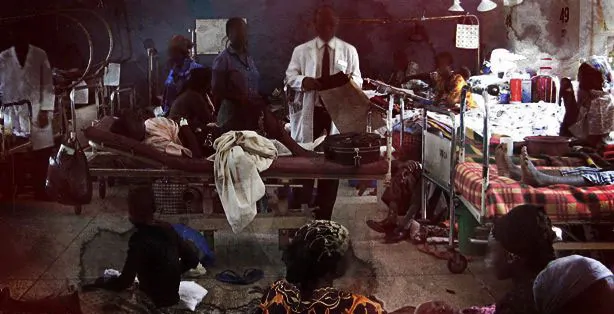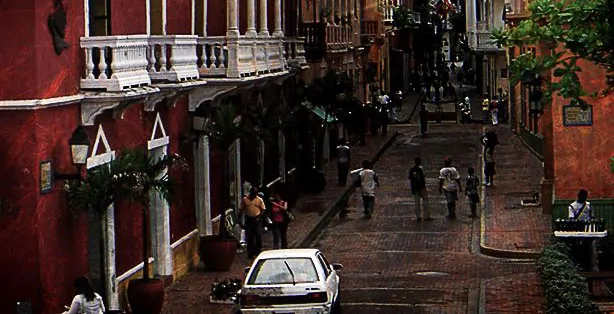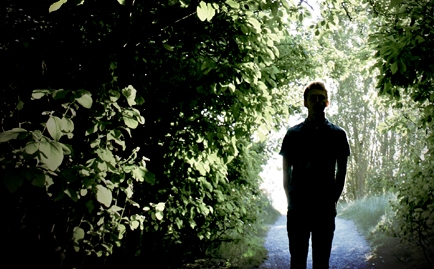
“Welcome to hell,” the European doctor greeted our medical team snidely at the entrance to the Lilongwe Hospital. Hell is what it was.
I had first visited hell a few years earlier when Boyd, a young man I knew in Lilongwe, was struck by a car while crossing the road at dusk.
Boyd’s father showed up at my house in the dark and asked anxiously if! would drive him and his family to the hospital to find his son.
The stench was nauseating. Every part of the hospital was in some state of disrepair. Nothing appeared to have been painted in years. I watched the staff mop floors that remained curiously grimy.
We found Boyd on a dingy gurney in the hallway leading to the ER. He had a compound fracture; the bone protruded through the skin. His leg, his pants, and the gurney were all drenched in blood. He was still bleeding.
“Has he seen a doctor?” I asked.
An ER attendant spoke. “No, we are waiting for the doctor.”
I walked into the ER to try to find help. There were no doctors, so I rounded up two interns and convinced them to bring Boyd into the ER to get the bleeding stopped and clean the puncture wound in his leg. They agreed, rolled him into the ER, and promised to look after him until the doctor arrived. I felt good about being helpful and headed home.
That was Friday night. Late Monday evening, Boyd’s father was back at my door. “Boyd is in a lot of pain. Could you help me with some money for some pain medication?”
“Pain medication?” I was surprised. “Once a fracture is set, there should be no pain.”
“The leg has not been set yet,” his father replied.
What? Boyd lay there in the hospital for three days with a compound fracture, and no one had set it! I knew the orthopedic surgeon would not be in at night, so I waited until the morning and headed back to “hell” with several of my Malawian college students. We hunted the halls for an hour looking for the one orthopedic surgeon in the country and finally found him in an operating theater, teaching a class. He waved me in, and I told him about Boyd. He was unaware of the case and graciously told me to bring him.
We found Boyd, but none of the nurses could find a gurney to roll him to the operating room. So we picked up his bed, each taking a corner, and we carried him to the operating theater.
His leg had rotted. It took almost six months to heal. If there’s a place in this world where people lie for days with gaping wounds—that’s a place of hell on earth.
Bothered
I’ll be honest. I write all of this with the intention of bothering you. I hope you will no longer be willing to ignore people who hurt.
Oppression, injustice, poverty, bigotry and abuse are real and present. But it doesn’t have to be this way. God put you and me here to make this world a better place, a more beautiful place. When Jesus left, He asked that you and I continue to change and love the world. The mission and purpose of the local church was never intended to end at the edge of our community.
King Solomon writes about the heart of God: “Rescue the perishing; don’t hesitate to step in and help. If you say, ‘Hey, that’s none of my business,’ will that get you off the hook? Someone is watching you closely, you know–Someone not impressed with weak excuses.”
So whatever the cost, go in the name of Jesus and love people who hurt. Tell them and show them that God has a better way, a more beautiful war, a life-giving way.
Conflict
Educators have discovered an interesting phenomenon: We learn best and comprehend more when our minds are disturbed. In other words, the more people are bothered by what they are being taught—because it is new or radically different and they disagree—then the more likely the information will change the way they think and live. The process of wrestling with difficult concepts makes them better thinkers and ultimately deeper people. The process even has a name—cognitive conflict (or disequilibration).
Jesus was brilliant at this. He masterfully used parables or illustrations to disturb those He taught.
Being disturbed is not just a good way to learn—it’s necessary for transformation.
Jesus would always propose equilibration to people’s thinking by offering a better way to live, a more beautiful way to live, a more godly way to live. But He let them choose.
Diamonds
Spiritual transformation often happens in the moments of life that stun us. When we experience, watch or hear of something disturbing, it creates this cognitive conflict that can change the way we think and live.
You may already know how diamonds are formed. Carbon, which is just black dirt, is compressed by millions of pounds of pressure by the earth’s weight. This extreme pressure and heat from the earth’s core transform the carbon into something pure and beautiful. The greater the heat and pressure, the more pure (or clear) the diamond forms.
In much the same way, I’m convinced we are transformed through moments of spiritual conflict. Under the pressure of going globally and giving our lives away, we open ourselves to the possibility of God crafting something beautiful in our souls. He uses the pressure of the experience and the heat of the moment—sometimes literally—to transform us spiritually and make our lives a bit more beautiful.
We have two options. We can choose to stay and ignore. Or we can choose to go and see and be disturbed. One choice leads to a kind of death; the other leads to life and change and hope.
©2010 Palmer Chinchen. True Religion published by Cook Communications Ministries/David C. Cook. Publisher permission required to reproduce. All rights reserved.






















